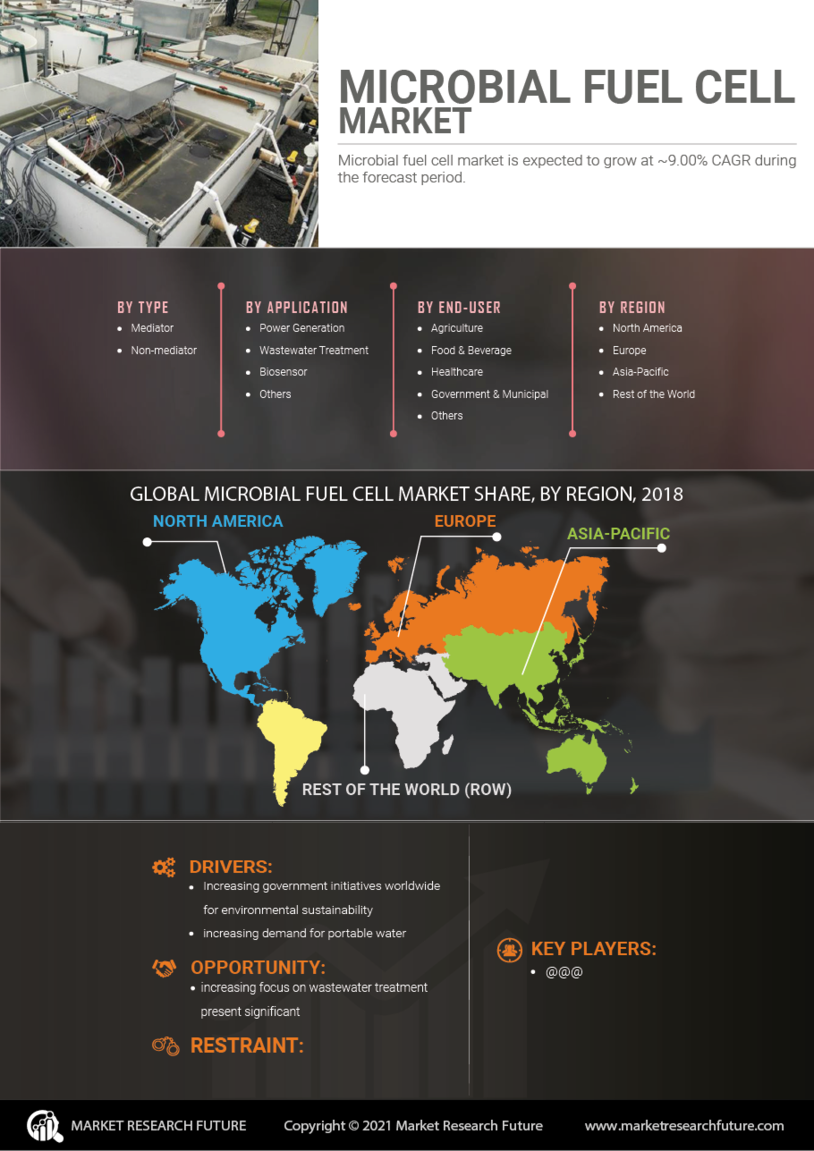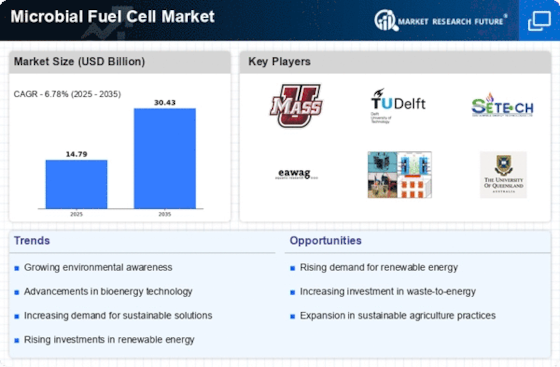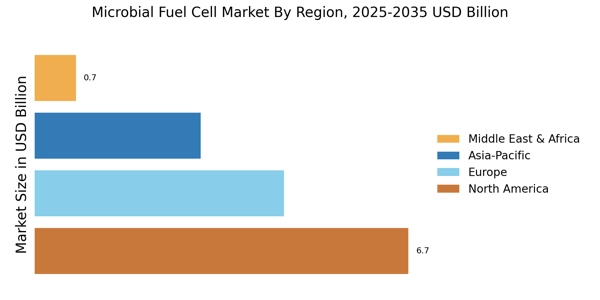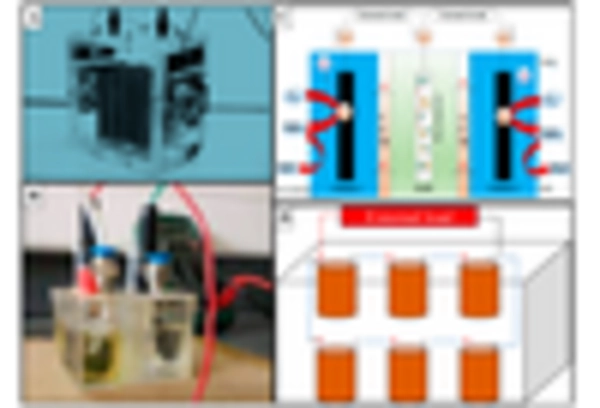Advancements in Biotechnology
Recent advancements in biotechnology are significantly influencing the Microbial Fuel Cell Market. Innovations in microbial strains and bioengineering techniques have enhanced the efficiency and performance of microbial fuel cells. For instance, genetically modified microorganisms can now produce higher energy outputs from organic substrates, which could potentially double the energy conversion efficiency compared to traditional methods. This technological evolution not only improves the viability of microbial fuel cells in various applications but also attracts investment from both public and private sectors. The market is expected to witness a surge in research and development activities, further driving growth and adoption of microbial fuel cell technologies.
Rising Demand for Renewable Energy
The increasing The Microbial Fuel Cell Industry. As nations strive to reduce their carbon footprints, microbial fuel cells, which convert organic matter into electricity, present a sustainable alternative to fossil fuels. The market is projected to grow at a compound annual growth rate of approximately 10% over the next five years, driven by this shift towards cleaner energy solutions. Furthermore, the integration of microbial fuel cells into energy systems can enhance energy security and resilience, making them an attractive option for both urban and rural applications. This growing demand for renewable energy is likely to propel investments in microbial fuel cell technologies, thereby expanding the market landscape.
Government Initiatives and Policies
Government initiatives and policies aimed at promoting clean energy technologies are playing a vital role in shaping the Microbial Fuel Cell Market. Various countries are implementing regulations and incentives to encourage the adoption of renewable energy solutions, including microbial fuel cells. For example, subsidies for research and development, tax incentives for clean energy projects, and funding for pilot programs are becoming increasingly common. These supportive measures are expected to stimulate market growth, as they lower the financial barriers for companies looking to invest in microbial fuel cell technologies. As governments continue to prioritize sustainability, the microbial fuel cell market is likely to benefit from enhanced visibility and support.
Integration with Wastewater Treatment
The integration of microbial fuel cells with wastewater treatment processes is emerging as a crucial driver for the Microbial Fuel Cell Market. This synergy not only addresses the pressing need for effective wastewater management but also generates renewable energy from waste. The market for wastewater treatment is projected to reach USD 500 billion by 2026, and the incorporation of microbial fuel cells can enhance the energy recovery aspect of these systems. By converting organic pollutants into electricity, microbial fuel cells can significantly reduce operational costs and improve the sustainability of wastewater treatment facilities. This dual benefit of energy generation and waste management is likely to attract more stakeholders to the microbial fuel cell sector.
Growing Awareness of Environmental Issues
The rising awareness of environmental issues among consumers and industries is a significant driver for the Microbial Fuel Cell Market. As public concern regarding pollution and climate change intensifies, there is a growing demand for sustainable energy solutions. Microbial fuel cells, which utilize organic waste to generate electricity, align well with this shift towards eco-friendly technologies. Market Research Future indicates that consumers are increasingly willing to support products and services that contribute to environmental sustainability. This trend is likely to encourage businesses to adopt microbial fuel cell technologies, thereby expanding the market. The intersection of consumer awareness and technological innovation is expected to create new opportunities for growth in the microbial fuel cell sector.

















